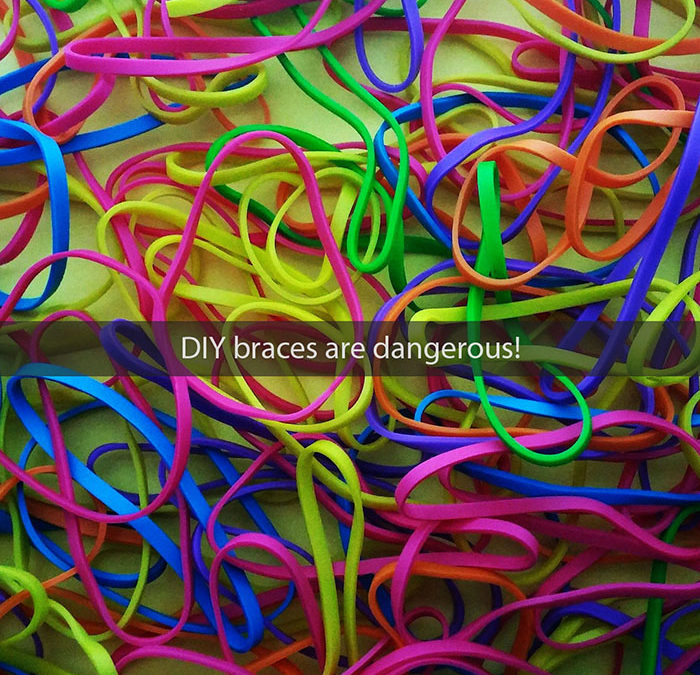SOME DO-IT-YOURSELF projects leave us in awe of the sheer ingenuity and creativity involved. Others…not so much. DIY braces definitely fall into the latter category. There’s a reason it takes years of specialized training on top of dental school before orthodontists begin practicing. Teeth are complicated; moving them into a better position is even more complicated.
Only the Experts Have the Right Knowledge and Tools
To design a treatment plan for a patient, we have to factor in growth patterns in the bones and facial tissues, how wisdom teeth will affect the positions of the other teeth, the patient’s overall health, and more. A kid with paper clips and rubber bands lacks the knowledge and tools to do any of that planning.
DIY Braces Can Go Horribly Wrong
Anyone who attempts to correct their own orthodontic problems risks an outcome like David Campbell’s. He tried to close the gap between his front teeth with rubber bands. When the rubber bands mysteriously vanished overnight, he added new ones, not realizing that the previous rubber bands had crept beneath his gums, where they worked their way up the roots and strangled his teeth.
Root strangulation isn’t the only way DIY braces can go wrong. They can cause permanent damage to tooth enamel, create tooth sensitivity, create new gaps between teeth, and damage the teeth, gums, and jaw. Leave braces to the experts!

